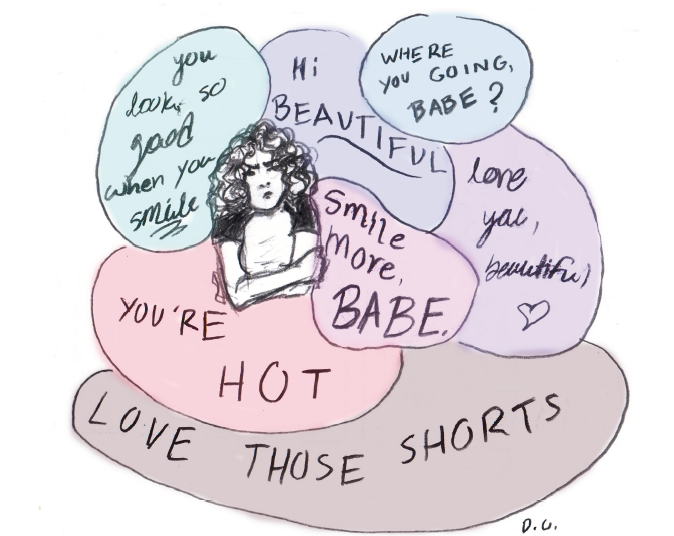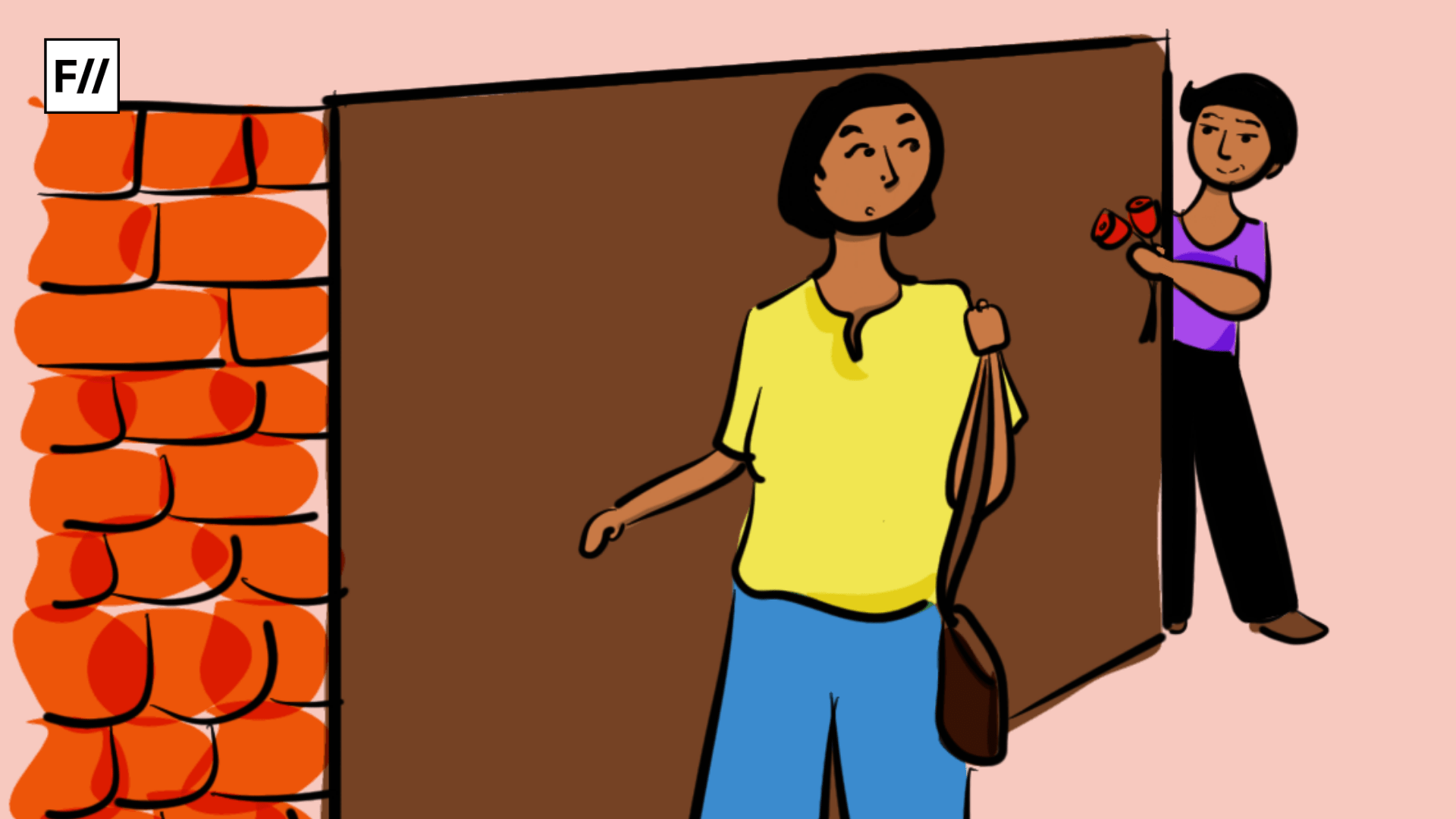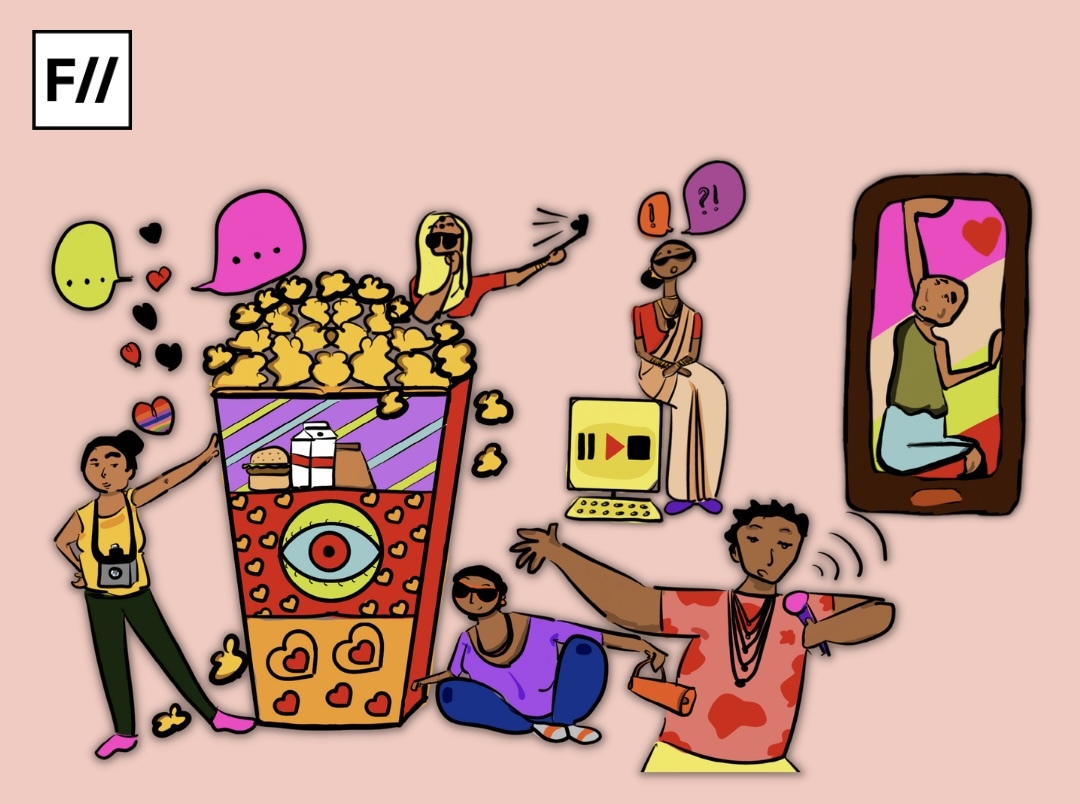A few years ago, a survey conducted in America had 20 percent of those surveyed opining that catcalling is a form of compliment. The other 24 percent were unsure whether it could be considered a compliment or it is just another way to harass individuals, especially women. It might come as a surprise to many but the respondents of the survey included not just men but also women, comprising both catcallers and the catcalled.
This undoubtedly makes us wonder about the situation in our own country. If the above-mentioned is the socio-moral compass of people in a so-called first-world country like the U.S, every Delhi and Mumbai woman who has faced public sexual harassment in India has barely any hope for change.
It is a fact that 80-90 percent of women in Delhi, Mumbai, and all major cities in India alike have been catcalled at least once in their lifetimes. It is rather shocking how catcalling barely holds the gravity of its objectification in most cases and is dismissed as just another compliment by a passing stranger on the street. It is maybe for this very reason that despite development in age, time, and location, the nature of catcalling changes in degree but it never appears to cease.

Another shocking reason why catcalling occurs so rampantly is the nuanced way in which many women receive it. In fact, from several personal stories and experiences, it can be seen that many women who get catcalled seem to be conditioned to like it as it makes them feel like they have “still got it”.
By tracing the trajectory of most women’s lives, it can be seen that catcalling becomes less frequent as they grow up. Patriarchy makes women feel that catcalling reduces as they become “less desirable” with age, while the true reason behind it is that they become less naive as they grow up. Minor girls and younger women are ‘easy targets’ for harassment. Aging, therefore, perhaps makes women less susceptible to catcalling. but it sure does not put an end to it
Before we shift the onus of catcalling to women and victim shame, I would like to reflect on this by reminding that a patriarchal society builds us up by equating our bodily worth with the validation of the male gaze. Women are, from a tender age, deluded with the idea that only a man’s compliment on their beauty and abilities can gain them ultimate validation, which eventually cages them into a lifelong thirst for male compliments.
As they grow up, this habit converts into a search for validation from random strangers who make them feel worthy of their bodies. This is where the subtle line between objectification and complimenting gets hazed out for women.
Author Farida D. writes, “Catcalling is a complement to dominance- not a compliment”. This is quite appropriate as this elusive act of patriarchy which takes place only on a one-to-one basis in the form of a Bollywood song dedicated by a stranger or a comment on a woman’s kohled eyes, has otherwise no specific demarcations for it to be called public harassment.
It is after all just another way for men to feel they have a right to comment on any woman’s clothing or body, despite knowing the discomfort they might cause. There is a sort of sadistic pleasure that is derived from such assertion of gender power.
Also read: A Stalker Is Not Just An Individual But The Society Itself: How Well Do We Address Stalking?

By tracing the trajectory of most women’s lives, it can be seen that catcalling becomes less frequent as they grow up. Patriarchy makes women feel that catcalling reduces as they become “less desirable” with age, while the true reason behind it is that they become less naive as they grow up. Minor girls and younger women are ‘easy targets’ for harassment. Aging, therefore, perhaps makes women less susceptible to catcalling. but it sure does not put an end to it.
A critical analysis of the act of catcalling would reveal that through this act of objectification, men assert power and entitlement on not just the women on the street but the street itself. It is as though, the street belongs to them, and so do the decrees of it. Once a woman is out of her house and on a street, the street space switches from her zone of safety to a zone dominated by patriarchy. Catcalling being a manifestation of this is thus not just gendered entitlement, but also a demonstration of spatial entitlement.
Unfortunately, the Indian Penal Code does not specifically define catcalling. However, Section 509 of the Indian Penal Code makes eve-teasing a punishable offense. Although catcalling may not necessarily always be sexually suggestive like eve-teasing, it is nonetheless, a method of harassment that makes women feel extremely uncomfortable and unsafe on the streets
While catcallers may live with the audacious knowledge that their ‘compliments’ make women and other catcalled individuals feel good about themselves, we must understand the difference between a compliment and harassment veiled as validation through unsolicited comments by a stranger.
The voices of catcallers should, therefore, never outweigh the voices of the women on the streets, and catcalling should be recognised as nothing but harassment. While it is easier to not mind the ‘compliments’ of catcallers and walk past them, women should not resort to the choice of neglecting their harasser. What might start as a whistle could eventually develop into things as grave as stalking in physical proximity or unsolicited touches, and a threat to safety.

Unfortunately, the Indian Penal Code does not specifically define catcalling. However, Section 509 of the Indian Penal Code makes eve-teasing a punishable offense. Although catcalling may not necessarily always be sexually suggestive like eve-teasing, it is nonetheless, a method of harassment that makes women feel extremely uncomfortable and unsafe on the streets.
Even flashing, exercising vulgarity, or exposing oneself directed to a woman publicly is defined as catcalling. Offenders of such activities should be reported immediately and can be jailed for up to three years along with a fine.
It is high time that our public spaces be reimagined with a gender lens so that harassers stop indulging in activities like catcalling. Inculcating fear of punishment and social sanctions is absolutely necessary to bring about change in this pattern of spatial and gendered entitlement to public spaces, leading to harassment of women and other individuals from marginalised genders.
Also read: Harassment In Films: Bollywood’s Constant Normalisation Of Toxicity As Love
Mrittika has recently graduated with a bachelor’s degree in English from Jadavpur University. She is usually found expressing her love for art, politics, and culture through words and music. At other times she is most likely traveling around the town trying new delicacies and imagining her life as a Greta Gerwig movie. She is on Instagram and LinkedIn
Featured Illustration: Ritika Banerjee for Feminism In India
About the author(s)
Mrittika is a student of English. She is usually found expressing her love for art through words and music. At other times she is most likely traveling around the town trying new delicacies and imagining her life as a Greta Gerwig movie




